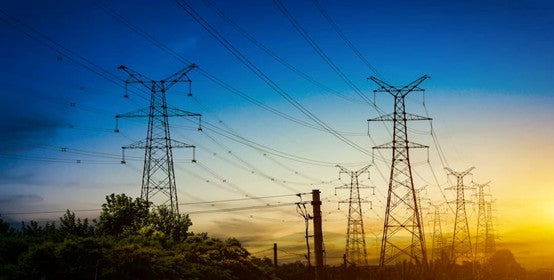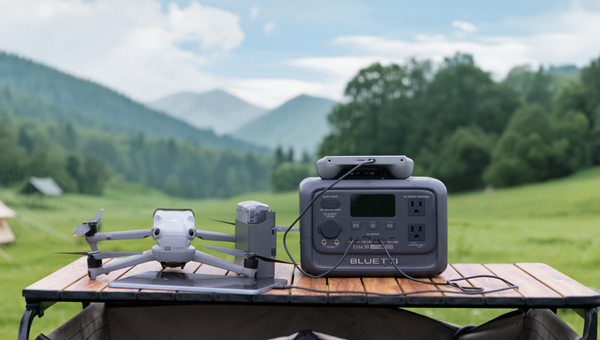Your cart is empty
Shop our productsThe purpose of this article is to answer the question of whether or not a space heater uses a lot of electricity and how many watts it uses. Space heaters are an essential source of heat and comfort during the cold winter months, but they can also be energy-intensive. Understanding the amount of electricity used by a space heater is important in making sure that you are using energy efficiently and responsibly. In this article, we will discuss the electricity usage of space heaters and how to best use them to maximize energy efficiency.
How Much Electricity Does a Space Heater Use?
Space heaters require electricity to operate, with consumption varying based on their size, type, and power settings. Generally, a space heater uses between 750 and 1,500 watts, with most residential models operating at around 1,500 W on high settings. This means that in one hour, it consumes 0.75 to 1.5 kilowatt-hours (kWh) of electricity. For 8 hours of daily use, this equates to 6 to 12 kWh/day. Over a 30-day month, a space heater can consume 180 to 360 kWh, and over a 5-month heating season (150 days), 900 to 1,800 kWh.
Electricity costs vary greatly between different providers and locations, but it is important to be aware of the potential costs associated with running a space heater. For example, if electricity costs 17.45 cents per kWh, a space heater used for a 5-month heating season could cost $157.05 to $314.10 annually. These estimates help you decide whether a space heater is cost-effective for your needs.
Space Heater Electricity Consumption and Cost
Here are the energy costs of using a space heater. The costs are calculated based on the latest average electricity rates in the US (Choose Energy, 2025)
|
Details |
750 watts (0.75 kW) |
1,500 watts (1.5 kW) |
|
Power Consumption (Hourly) |
0.75 kWh |
1.5 kWh |
|
Daily Consumption (8 hours/day) |
6 kWh/day |
12 kWh/day |
|
Monthly Consumption (30 days) |
180 kWh/month |
360 kWh/month |
|
Yearly Consumption (5 months) |
900 kWh/year |
1,800 kWh/year |
|
Electricity Cost (Hourly) @ 17.45¢/kWh |
$0.131/hour |
$0.262/hour |
|
Daily Cost (8 hours/day) @ 17.45¢/kWh |
$1.05/day |
$2.10/day |
|
Monthly Cost (30 days) @ 17.45¢/kWh |
$31.41/month |
$62.82/month |
|
Yearly Cost (5 months) @ 17.45¢/kWh |
$157.05/year |
$314.10/year |
How Many Watts Do Different Space Heaters Use in a Year?
When considering the purchase of a space heater, assessing the wattage is a key component. Space heaters vary in wattage and usually range from 750 to 1500 watts, with some high-end models reaching up to 2,000 watts. In general, larger rooms will require more wattage than smaller rooms in order to evenly heat the space.
To estimate annual electricity costs, multiply the wattage by the hours used per year. For example:
- A 750 W space heater running 8 hours/day for 5 months (150 days) uses 900 kWh/year (0.75 kW × 8 hours × 150 days).
- A 1,500 W space heater under the same conditions uses 1,800 kWh/year (1.5 kW × 8 hours × 150 days).
As electricity prices vary in different parts of the world, the actual cost of running a space heater for a given area will differ. As an example, if a kWh of electricity costs $0.1745, the 750 W heater costs $157.05/year, while the 1,500 W heater costs $314.10/year.
It is important to consider the size of the room a space heater is going to be installed in and the wattage of the device before purchasing. Knowing the wattage of the device and the hours per year it will be run will help provide a rough estimate of the yearly electricity cost.
How Much Does It Cost To Power A Space Heater?
Space heaters are energy-efficient and inexpensive appliances; however, they do consume electricity. Depending on the type of heater and its size, the power consumption of the appliance can range from 750 to 1500 watts, with most residential models averaging 1,500 W on high settings. The cost to operate a space heater will depend on the type of power used and the rates charged by utilities. At $0.1745/kWh, a 1,500 W space heater costs approximately $0.262/hour, $2.10/day (8 hours), $62.82/month (30 days), and $314.10/year (5 months).
Do Electric Heaters Use A Lot of Electricity?
Whether electric heaters use a lot of electricity depends on their type, size, and usage. Space heaters typically range from 750 to 1,500 watts. For example, a 1,000 W heater uses 1 kWh/hour. Running it for 3 hours/day consumes 3 kWh/day, or 90 kWh/month. Compared to other appliances (e.g., a 100 W fan or 96 W laptop), space heaters use considerably more power.
The average US household uses about 886 kWh/month (~10,632 kWh/year). A space heater used 3 hours/day adds 90 kWh/month, or roughly 10% of the monthly bill. For 8 hours/day, a 1,500 W heater adds 360 kWh/month, or about 40% of the monthly bill, which is significant.
How to Run a Space Heater During Power Outages?
The real nightmare is when your power is cut during extreme cold winters. You can't imagine a night without proper heating. With recent disruptions in the climate, power outages are quite common. The best solution to tackle such unexpected events is a proper power backup. It allows you to run all essential appliances from space heaters to ovens, refrigerators, etc. Here are our expert-recommended power backup options:
BLUETTI Apex 300 Versatile Power Station

The BLUETTI Apex 300 Versatile Power Station is synonymous with energy independence. It is a complete package to run your entire home. The power station has 2,764.8Wh capacity with 3,840W power output. You can expand the capacity with B300K/B300 battery packs as per your needs, up to 58kWh and 11.52kW. The system offers an uninterruptible power supply with instant 0ms UPS switchover.
You can power all types of appliances with Apex 300 due to its 120V/240V dual voltage supply. If you want to get rid of electricity bills, you can use the system as a standalone power generator, harnessing clean solar energy. The system supports 2.4kW-30kW solar input with super-fast recharging. It's the most efficient power station with 5X energy-saving innovations, including a magnetic-integrated transformer, short cable design, and upgraded topology.
Get the BLUETTI Apex 300 for peaceful and cozy nights with your space heater humming without worrying about power outages. It will also save you electricity costs if run on clean solar energy. The system is highly durable and comes with advanced LiFePO4 battery packs known for exceptional longevity (6,000+ cycles, 17-year daily use).
BLUETTI AC200L Solar Generator

The BLUETTI AC200L Solar Generator is your portable solution to tackle power outages. It can run your space heater and other essential appliances seamlessly. The solar generator offers 2,400W power output with 2,048Wh capacity (Expandable up to 7,577.6Wh with 2*B300K). The solar generator is one power solution for AC, DC, and RV. It supports fast recharge with a multi-recharge facility.
- AC Charging (2,400W): ~1.5 hours
- Solar Charging (1,200W): ~2.5 hours (ideal conditions)
- Car Charging (12V/24V): ~10-20 hours
- AC + Solar (2,400W): ~1.5 hours (ideal conditions)
The portable solar generator comes with advanced LiFePO4 battery packs with 3,000+ cycles to 80% capacity for exceptional durability. It also has a 20ms UPS feature for seamless switchover in case of power outages. You can also run it for heavy loads in power lifting mode with 3,600W surge wattage. The power station can be controlled with the smart BLUETTI app without any hassle.
Does a Space Heater Use Electricity when Turned Off?
A space heater does not use electricity when it is turned off; however, it does still draw a small amount of power when it is plugged in and not in use. This is referred to as a "phantom load" or "standby power". It is the small amount of electricity that devices like computers, televisions, and other home electronics use when they are powered on but not actively in use. This often happens when the device is plugged in but turned off or in standby mode. In the case of a space heater, it can draw a small amount of electricity when it is not in use if it is plugged in.
The amount of electricity that a space heater uses when not active will depend on the make, model, and wattage of the heater. Generally, a space heater will draw about 1-2 watts of power when it is plugged in and not actively in use. This is a very small amount of electricity, but it can add up over time if the heater is plugged in but not being used.
FAQs
1. What type of space heater are you using?
Most commonly used space heaters are ceramic space heaters. These are a type of electric heater that uses a ceramic heating element to create heat. They are generally small in size and can be placed directly on the floor or table, making them a good choice for supplemental heating in smaller rooms. Ceramic heaters can be more energy efficient than other types of heaters, and can provide targeted, localized heating with minimal impact on the surrounding air temperature. They often have adjustable thermostats, allowing you to set the desired heat level. They are also usually equipped with safety features, such as an overheat protection switch.
2. What is the wattage of the space heater?
The wattage of a space heater is determined by its size and how much heat it is able to generate. Space heaters can range from 750 watts to 1,500 watts, with some models reaching 2,000 watts. It is important to select an appropriate size of space heater for your needs, as one that is too small will not be able to adequately heat the space, while one that is too large will be too powerful and could be a fire hazard. When in doubt, always consult the product documentation for the correct wattage recommendation.
3. Does the space heater have a thermostat or other temperature control?
Yes, the space heater has a thermostat and other temperature controls. The thermostat allows you to easily control the temperature of your space heater to keep it at a comfortable level. It also has adjustable settings to help you achieve the desired temperature quickly and efficiently. Additionally, some models have a timer that allows you to set it to turn off after a set amount of time, helping you to save power and lower your energy bills.
4. How long does the space heater run per day?
The space heater typically runs for several hours each day, depending on the temperature and type of space heater. If you have an electric space heater, you will likely need to set a timer or thermostat to keep the space heater running for the desired period of time. Other space heaters, such as a gas space heater, can be set to run for a set amount of time each day. Generally, most people use their space heater for several hours in the morning and several hours in the evening, providing a comfortable, warm temperature to their home while conserving energy.
The exact amount of time a space heater runs per day will vary depending on individual needs.
5. Is the space heater Energy Star certified?
No, the space heater is not Energy Star certified. Energy Star certification is a program designed to help conserve energy and reduce emissions by encouraging the use of energy-efficient products. If a product has earned the Energy Star label, it means it was tested and met certain standards and is more energy efficient than standard models. The space heater is not Energy Star certified because it does not meet the specific requirements of the program.
Conclusion
Space heaters are energy-intensive appliances, consuming 750 to 1,500 watts and adding 180–360 kWh/month to your electricity bill when used 8 hours/day. At $0.1745/kWh, this costs $157.05–$314.10/year for a 5-month heating season. To minimize costs, choose an appropriately sized heater, use energy-saving features like thermostats and timers, and ensure proper room insulation. Unplug heaters when not in use to avoid standby power costs. By understanding wattage and usage patterns, you can use space heaters efficiently and manage electricity costs effectively.
You can get rid of high energy costs with the BLUETTI Apex 300 power station or AC200L solar generator. You can power your space heaters with clean, renewable energy. Both devices are designed not just to offer power backup but also to ensure complete energy independence. So, what are you waiting for? Get your hands on the latest BLUETTI devices and keep your home cozy without worrying about high electricity costs or power outages.
Shop products from this article
You May Also Like

Cherokee Electric Cooperative: Bill Pay, Outage Map, and Customer Service Guide
Cherokee Electric Coop is a local electric cooperative that provides reliable energy services to its members. This article provides important information about this cooperative, such as how to pay your...

Central Florida Electric Cooperative: Pay Bill | Outage Map | Customer Service | Phone Number
This article will discuss the services offered by Central Florida Electric Cooperative and provide customers with important information about how to pay their bills, check outages maps, get customer service,...

BVU Authority: Pay Bill | Check Outage Map | Customer Service | Phone Number
This article is all about providing readers with vital information about Bvu Authority, one of the leading utilities providers in the United States. We will cover topics such as how...





















































































































































































































































